A Brain Scientist's Insight
By Dr. Mehmet Oz
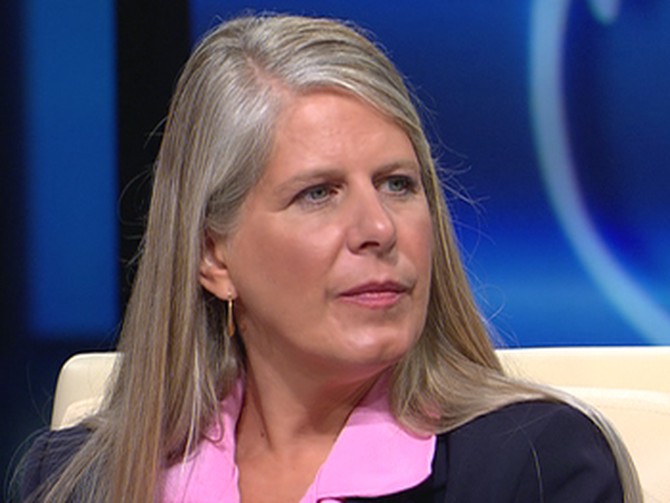
Dr. Jill Bolte Taylor is a Harvard-trained neuroanatomist—a scientist who specializes in how the brain works. In 1996, Jill suffered a massive stroke when a blood vessel burst in the left hemisphere of her brain. She was rushed to the emergency room and treated, but it took a full eight years for Jill to journey back.
During the entire ordeal, Jill remained conscious. She wrote a detailed account of the day of her stroke and the subsequent years of recovery in the book My Stroke of Insight. An Internet video of her telling her story at the annual TED (Technology Entertainment Design) Conference became an Internet sensation. She has been interviewed for Oprah's Soul Series and on Dr. Oz's Oprah Radio show, and was the subject of an article in O, The Oprah Magazine.
At the moment of her stroke, Jill says she lost everything. "I was just an infant in a woman's body. I could not walk, talk, read, write. No recollection of my life. No recollection of anything. No identification with anything in the external world," she says. "It wasn't necessarily a bad experience either."
During the entire ordeal, Jill remained conscious. She wrote a detailed account of the day of her stroke and the subsequent years of recovery in the book My Stroke of Insight. An Internet video of her telling her story at the annual TED (Technology Entertainment Design) Conference became an Internet sensation. She has been interviewed for Oprah's Soul Series and on Dr. Oz's Oprah Radio show, and was the subject of an article in O, The Oprah Magazine.
At the moment of her stroke, Jill says she lost everything. "I was just an infant in a woman's body. I could not walk, talk, read, write. No recollection of my life. No recollection of anything. No identification with anything in the external world," she says. "It wasn't necessarily a bad experience either."
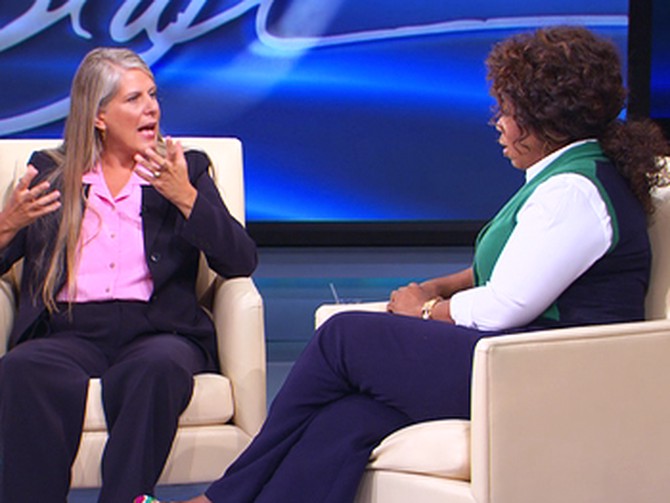
Jill says on the morning of her stroke, she woke to the sound of her alarm clock. "I was immediately hit with a pounding pain behind my left eye. It was that pulsating pain that would grab me and then release me. And it was very unusual for me to have any kind of pain, because I was physically fit. I thought, 'Okay, well I'm just having a headache, so I'll just start my normal routine.'"
The morning light hurt her eyes, so she closed the blinds. She started exercising, but Jill says she felt disassociated from her own body. "I thought, 'Wow, I'm a strange-looking thing,'" she says. "It was as though my mind had shifted away from my normal perception of reality—where I'm the person on the machine having the experience—to some esoteric space where I'm witnessing myself having this experience."
Jill says she had never felt any sensation like this before, yet she was not alarmed. She got off the exercise machine and went to take a shower. She says her movement felt rigid and deliberate, and she was so focused on walking that she didn't notice any noise from outside.
As she stepped in the shower, the deliberateness of movement was extreme. She lost her balance and leaned up against the shower wall. "I looked at my arm, and I realized I could no longer define the boundaries of where I began and where I ended. What were the atoms and molecules of my arm versus the atoms and molecules of the wall? ... Everything blended together as one," she says. "I felt that I was as big as the universe. I wasn't terrified. I wasn't feeling anything other than an awe for the fact that, 'Oh my gosh, I am alive!'"
Then, as Jill dressed for work, her right arm became paralyzed. "And that's when my brain said to me, 'Oh my gosh, I'm having a stroke,'" she says. "And then the next thing my brain said was: 'Wow. This is so cool. How many brain scientists have the opportunity to explore their own brain?'"
The morning light hurt her eyes, so she closed the blinds. She started exercising, but Jill says she felt disassociated from her own body. "I thought, 'Wow, I'm a strange-looking thing,'" she says. "It was as though my mind had shifted away from my normal perception of reality—where I'm the person on the machine having the experience—to some esoteric space where I'm witnessing myself having this experience."
Jill says she had never felt any sensation like this before, yet she was not alarmed. She got off the exercise machine and went to take a shower. She says her movement felt rigid and deliberate, and she was so focused on walking that she didn't notice any noise from outside.
As she stepped in the shower, the deliberateness of movement was extreme. She lost her balance and leaned up against the shower wall. "I looked at my arm, and I realized I could no longer define the boundaries of where I began and where I ended. What were the atoms and molecules of my arm versus the atoms and molecules of the wall? ... Everything blended together as one," she says. "I felt that I was as big as the universe. I wasn't terrified. I wasn't feeling anything other than an awe for the fact that, 'Oh my gosh, I am alive!'"
Then, as Jill dressed for work, her right arm became paralyzed. "And that's when my brain said to me, 'Oh my gosh, I'm having a stroke,'" she says. "And then the next thing my brain said was: 'Wow. This is so cool. How many brain scientists have the opportunity to explore their own brain?'"
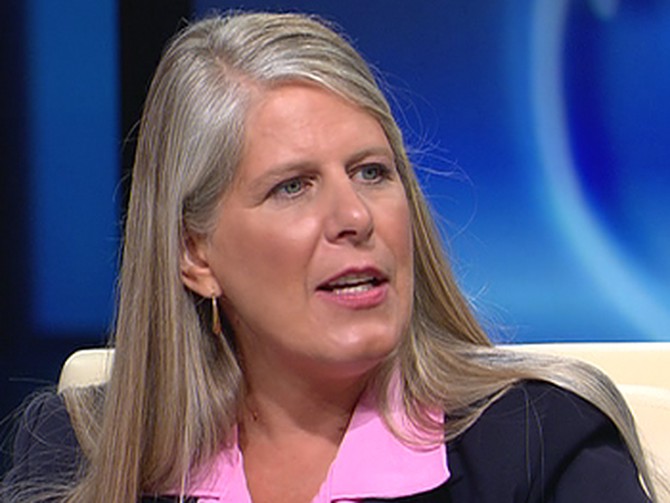
Jill says she eventually realized she had to call for help. The only problem was that the part of her brain that understands numbers and making phone calls was the part that was damaged by the stroke. "'911' was swimming in a pool of blood," Jill says. "That was right where the site of hemorrhage happened."
Calling for help became a four-hour process, Jill says. First she found a co-worker's business card. "I put the business card next to the telephone pad and then I matched the shape of the squiggle to the shape of the squiggle on the phone pad. Then I would push that," she says. "I had to cover the number that I had already dialed because I would drift out into no consciousness of reality."
When she finally managed to dial her colleague's number, she heard him speak but couldn't understand him. "I think to myself, 'Oh my gosh, he sounds like a golden retriever,'" Jill says. Then she tried to answer him. "And I think, 'Oh my gosh, I sound like a golden retriever.'"
Until that point, Jill says, she understood her voice inside of her own brain. But when she tried to communicate with the outside world, she had no luck.
Despite not knowing what words her colleague was saying to her, Jill says she understood that he would be able to help her. "Not by the words that he said, but by the inflexion in his voice," she says. "He was soothing. He knew it was me, and he reassured me that he was going to get me help."
Calling for help became a four-hour process, Jill says. First she found a co-worker's business card. "I put the business card next to the telephone pad and then I matched the shape of the squiggle to the shape of the squiggle on the phone pad. Then I would push that," she says. "I had to cover the number that I had already dialed because I would drift out into no consciousness of reality."
When she finally managed to dial her colleague's number, she heard him speak but couldn't understand him. "I think to myself, 'Oh my gosh, he sounds like a golden retriever,'" Jill says. Then she tried to answer him. "And I think, 'Oh my gosh, I sound like a golden retriever.'"
Until that point, Jill says, she understood her voice inside of her own brain. But when she tried to communicate with the outside world, she had no luck.
Despite not knowing what words her colleague was saying to her, Jill says she understood that he would be able to help her. "Not by the words that he said, but by the inflexion in his voice," she says. "He was soothing. He knew it was me, and he reassured me that he was going to get me help."
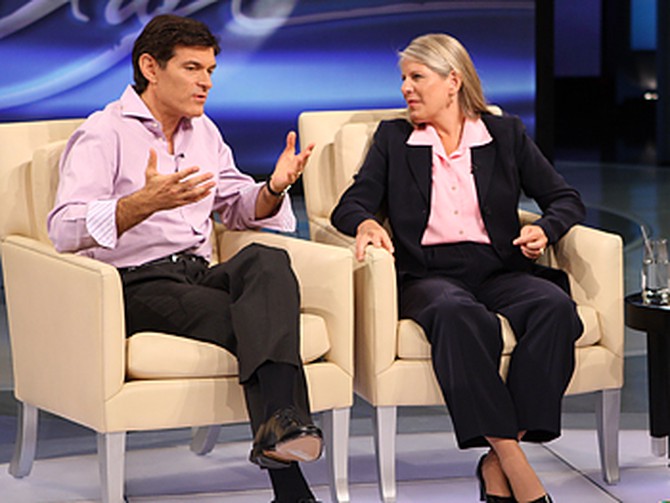
Dr. Oz explains that the stroke Jill suffered is actually not all that common. In about 85 percent of strokes, something—such as plaque—from the heart or a major artery gets dislodged and travels up to the brain. It gets stuck there and blocks off part of the brain from receiving blood. The cells that are denied blood eventually shrivel and die. In these cases, the patient will not recover in a way similar to Jill's experience.
How was Jill's stroke different? Dr. Oz says her stroke, called an arteriovenous malformation, was almost like a charley horse. Like a varicose vein, an artery became raised in her brain, and eventually popped and bathed her brain in blood. "That blood is toxic to the brain tissue," he says. "It also puts pressure on it. It causes spasms of the arteries around it, and this tissue begins to die."
Jill was able to recover from her stroke because not all of the tissue died—islands of healthy cells survived. "There must have been enough islands of cells alive to rebuild the plasticity of the brain," he says. "We didn't think the brain could recover until recently, but it turns out the brain does recover. All of the organs do. You just can nourish it and nurture it."
The left and right sides of everyone's brain are responsible for different tasks. The left is responsible for language and logic, while the right is more visual and processes information intuitively. The reason Jill couldn't speak—but understood from her colleague's soothing inflexion that he was sending help to her—is because the hemorrhage occurred on the left side of her brain.
How was Jill's stroke different? Dr. Oz says her stroke, called an arteriovenous malformation, was almost like a charley horse. Like a varicose vein, an artery became raised in her brain, and eventually popped and bathed her brain in blood. "That blood is toxic to the brain tissue," he says. "It also puts pressure on it. It causes spasms of the arteries around it, and this tissue begins to die."
Jill was able to recover from her stroke because not all of the tissue died—islands of healthy cells survived. "There must have been enough islands of cells alive to rebuild the plasticity of the brain," he says. "We didn't think the brain could recover until recently, but it turns out the brain does recover. All of the organs do. You just can nourish it and nurture it."
The left and right sides of everyone's brain are responsible for different tasks. The left is responsible for language and logic, while the right is more visual and processes information intuitively. The reason Jill couldn't speak—but understood from her colleague's soothing inflexion that he was sending help to her—is because the hemorrhage occurred on the left side of her brain.

When Jill was taken to the hospital, her boss called her mom, G.G., who lived in Indiana, and told her to get her affairs at home in order. G.G. would be needed in Boston for an extended period of time to care for her daughter.
On the third morning after the stroke, G.G. was scheduled to arrive, and Jill says everyone at the hospital was obviously excited—the buzz in the room was all about "G.G." "I'm thinking, what's a 'G.G.'?" Jill says. "I didn't even know what a mother was, much less who my mother was."
Jill says she remembers the exact moment her mother made her entrance. "I'm in bed, and G.G. peeps in around the corner of the room, and the room is filled with my doctors and my colleagues," she says. "And G.G. comes in and she walks past the doctors, she nods to them, she greets my colleagues, she walks around the bed, she picks up the sheet and she crawls in bed with me. She wraps her arms around me and she starts rocking me. And I'm thinking, 'Wow! This is what a 'G.G.' is. This is nice.'"
G.G. says when she walked in the room she felt a need to nurture Jill. "At the time, she was nothing but a breathing body," she says. "There wasn't anything else I could do except hold her."
On the third morning after the stroke, G.G. was scheduled to arrive, and Jill says everyone at the hospital was obviously excited—the buzz in the room was all about "G.G." "I'm thinking, what's a 'G.G.'?" Jill says. "I didn't even know what a mother was, much less who my mother was."
Jill says she remembers the exact moment her mother made her entrance. "I'm in bed, and G.G. peeps in around the corner of the room, and the room is filled with my doctors and my colleagues," she says. "And G.G. comes in and she walks past the doctors, she nods to them, she greets my colleagues, she walks around the bed, she picks up the sheet and she crawls in bed with me. She wraps her arms around me and she starts rocking me. And I'm thinking, 'Wow! This is what a 'G.G.' is. This is nice.'"
G.G. says when she walked in the room she felt a need to nurture Jill. "At the time, she was nothing but a breathing body," she says. "There wasn't anything else I could do except hold her."

After a surgery to remove the hemorrhage, Jill says she had to say goodbye to her old self—the highly accomplished scientist. "We let her go. We mourned the death of who I had been. We had to do that so that here I am. If I never got my cognitive mind back, if I was never capable of thinking logically again, I could still have a life. I could still be me, but I couldn't be held to the criteria of re-achieving that," she says "And then we moved forward. And it was like: 'Who am I now? Who is going to emerge from me now?'"
Jill says she then set about learning everything all over again, staring with the ABCs. Once, when G.G. was trying to teach Jill math, they were going over "one plus one" when Jill had a question. "What's a 'one'? I had no idea what a 'one' was," Jill says.
G.G. says she never imagined that Jill would recover so amazingly. "My objective at the time was the hope that I could bring her back to be able to live independently and function in the world," she says. "All I wanted her to do was be able to do the routine things that made life independent and she wasn't going to be dependent on somebody always being there."
Jill says she then set about learning everything all over again, staring with the ABCs. Once, when G.G. was trying to teach Jill math, they were going over "one plus one" when Jill had a question. "What's a 'one'? I had no idea what a 'one' was," Jill says.
G.G. says she never imagined that Jill would recover so amazingly. "My objective at the time was the hope that I could bring her back to be able to live independently and function in the world," she says. "All I wanted her to do was be able to do the routine things that made life independent and she wasn't going to be dependent on somebody always being there."
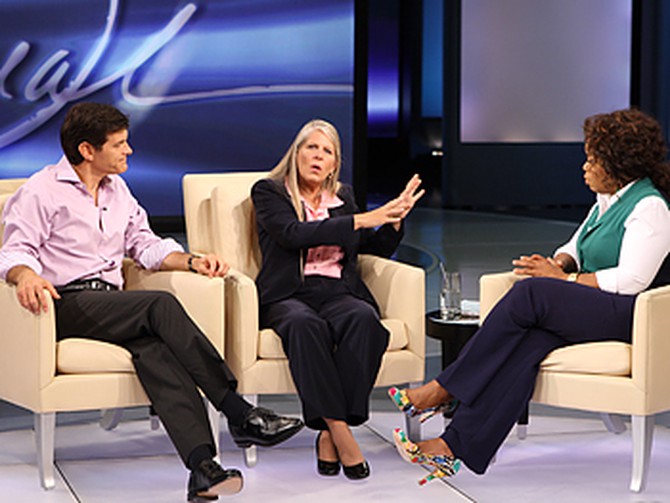
Jill explains that with her stroke, the external world was a painful place. "Sound coming in through my ears was chaos. Light coming in was burning. I couldn't distinguish three dimensions or any kind of definition," she says. "If you were talking to me, I wouldn't be able to pick your voice out from the background noise."
The alternative, she says, was to zone out and stay within her right hemisphere's limited consciousness. "I was experiencing bliss and euphoria. I was happy," she says. "I also lost all my emotional baggage. How's that feel? That was nice. That was freeing. Imagine what it would be like to just be in the present moment. All I had was the wonder and the splendor and the magnificence of the present moment—and it's beautiful."
In order to gain back left hemisphere function, like language, Jill says she had to make a conscious effort. "I would have to work real hard to try to read your lips, to try to listen to your sound," she says. "That was my willingness to try."
The alternative, she says, was to zone out and stay within her right hemisphere's limited consciousness. "I was experiencing bliss and euphoria. I was happy," she says. "I also lost all my emotional baggage. How's that feel? That was nice. That was freeing. Imagine what it would be like to just be in the present moment. All I had was the wonder and the splendor and the magnificence of the present moment—and it's beautiful."
In order to gain back left hemisphere function, like language, Jill says she had to make a conscious effort. "I would have to work real hard to try to read your lips, to try to listen to your sound," she says. "That was my willingness to try."
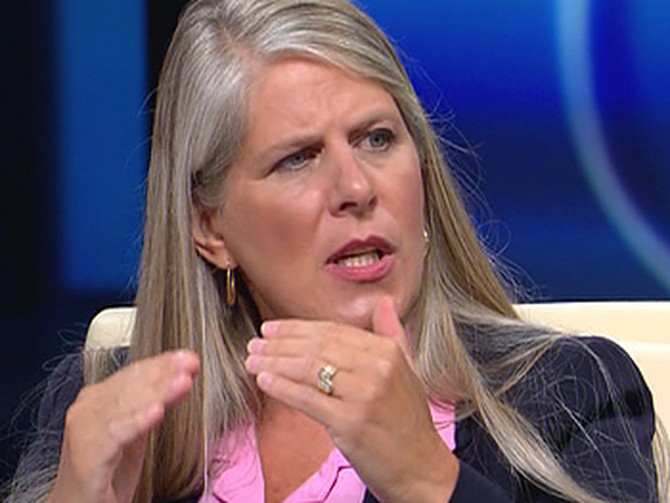
Jill says the energy of the people around her played an important role in her recovery. "Take responsibility for the energy you bring," she says. "I was over here happy and you're over there trying to talk to me, and you had to be a really wonderful energy coming toward me in order for me to be willing to try to understand."
Jill says she could feel the energy of the people who walked in her room and could even tell which nurses made her feel safe. The nurses who would make a connection with her, simply by making eye contact or touching her foot, made all the difference. "As opposed to someone who just comes in, deals with the machinery, ignores that there's even a warm body in the bed," she says. "I didn't feel safe in that person's care."
Jill says she could feel the energy of the people who walked in her room and could even tell which nurses made her feel safe. The nurses who would make a connection with her, simply by making eye contact or touching her foot, made all the difference. "As opposed to someone who just comes in, deals with the machinery, ignores that there's even a warm body in the bed," she says. "I didn't feel safe in that person's care."
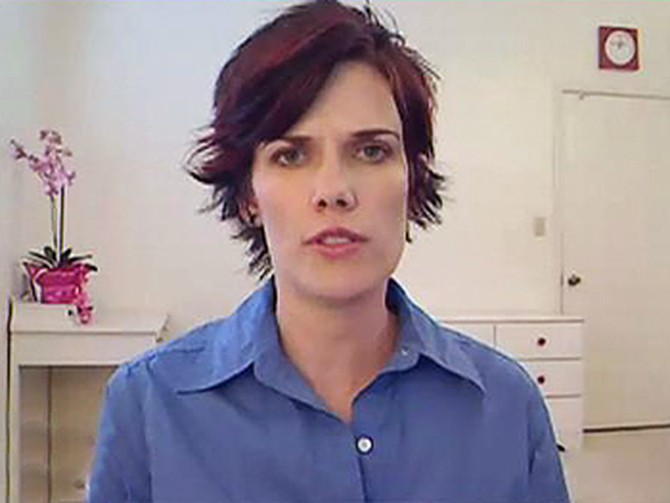
Sarah, a nurse in Phoenix, says her patient care has changed since reading Jill's book and learning what it's like to be the one receiving the care. "Rarely do we ever get the opportunity to hear the patient's perspective," she says. "They're in the hospital, [and] 12 hours later they're off your floor. You don't make that connection."
Sarah says she now realizes how important it is to make her patients feel safe and comfortable. "I can't imagine how frightening a hospital experience must be, so it just really opened my eyes to a different approach to my patients," she says. "I think about this story every time I walk into the hospital to start my shift."
Sarah says she now realizes how important it is to make her patients feel safe and comfortable. "I can't imagine how frightening a hospital experience must be, so it just really opened my eyes to a different approach to my patients," she says. "I think about this story every time I walk into the hospital to start my shift."
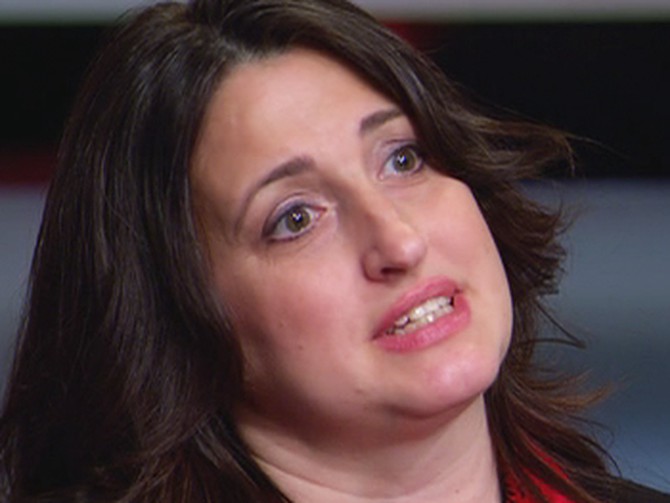
Listening to Jill's story reminds Lena, an audience member, about a painful experience she had with the nurses who cared for her. "I had to go through chemotherapy, and none of my family members or friends could support me at that time," she says. "They were very busy, and I'd have to go to the hospital alone, and when I'd walk in the room, the nurses wouldn't smile at me or acknowledge me. It's very painful to not have a warm touch when you are emotionally going through such a painful experience."
Dr. Oz says when doctors and nurses act cold, it's often a defense mechanism. "When someone is taking care of you and lets themself get close to you by taking their barrier down—and then you don't do well—it hurts and we go home and cry," he says. "So you build a defense up to protect yourself, which I don't think the right way to live life, but that's a very understandable response."
However, Dr. Oz says it's no excuse for how Lena was treated. "It's not a matter of having a defense or not," he says. "The right defense is to engage life."
Dr. Oz says when doctors and nurses act cold, it's often a defense mechanism. "When someone is taking care of you and lets themself get close to you by taking their barrier down—and then you don't do well—it hurts and we go home and cry," he says. "So you build a defense up to protect yourself, which I don't think the right way to live life, but that's a very understandable response."
However, Dr. Oz says it's no excuse for how Lena was treated. "It's not a matter of having a defense or not," he says. "The right defense is to engage life."
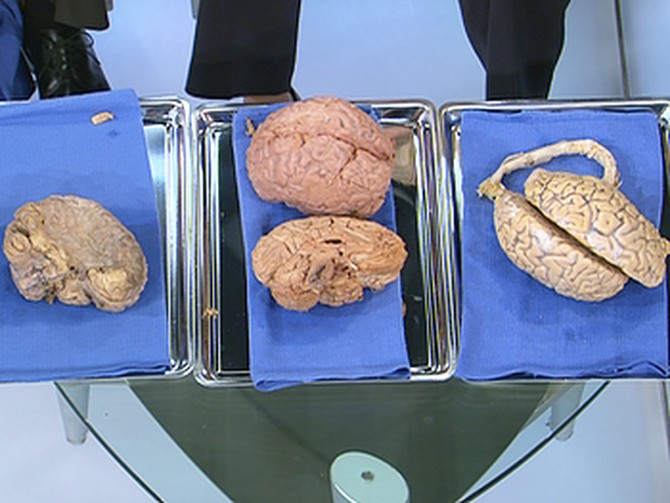
Jill was able to make a full recovery, but Dr. Oz says her stroke was atypical and only accounts for about 15 percent of all strokes. Because Jill received treatment in time, Dr. Oz says her cells were able to rebuild. "That's not what happens with the most common stroke," he says. "I bring this up because most people who have strokes actually have a certain amount of debilitation. They don't recover fully the way Jill does."
To show the physical effects of a stroke on the brain, Jill has brought along three examples. The first brain (pictured on the right, with its spinal cord attached) is healthy, and Jill says the person had normal brain control. "So the right hemisphere and left hemisphere would communicate with one another," she says.
The second example is a hemorrhagic stroke in the brain stem region (pictured in the middle, illustrated using two different perspectives), which is visible because it formed a black spot. "That big black spot, if we cut that away, you can see it's deep into that brain stem. And this portion of the brain stem is for inspiration—your ability to breathe in." Jill says she can tell this person died quickly, because the cells that were damaged during the stroke were controlling the person's ability to breath.
Jill's last example (pictured on the left) is from a person who had a major stroke in the right hemisphere of the brain, causing almost that entire hemisphere to disappear. "My guess is that this was a person who had a major stroke, ended up in a nursing home and remained in the nursing home for a while because you can live with this kind of degeneration," she says. "They would be paralyzed on the opposite side of the body and not be able to feel on the opposite side of the body, but they could probably still communicate with language."
To show the physical effects of a stroke on the brain, Jill has brought along three examples. The first brain (pictured on the right, with its spinal cord attached) is healthy, and Jill says the person had normal brain control. "So the right hemisphere and left hemisphere would communicate with one another," she says.
The second example is a hemorrhagic stroke in the brain stem region (pictured in the middle, illustrated using two different perspectives), which is visible because it formed a black spot. "That big black spot, if we cut that away, you can see it's deep into that brain stem. And this portion of the brain stem is for inspiration—your ability to breathe in." Jill says she can tell this person died quickly, because the cells that were damaged during the stroke were controlling the person's ability to breath.
Jill's last example (pictured on the left) is from a person who had a major stroke in the right hemisphere of the brain, causing almost that entire hemisphere to disappear. "My guess is that this was a person who had a major stroke, ended up in a nursing home and remained in the nursing home for a while because you can live with this kind of degeneration," she says. "They would be paralyzed on the opposite side of the body and not be able to feel on the opposite side of the body, but they could probably still communicate with language."
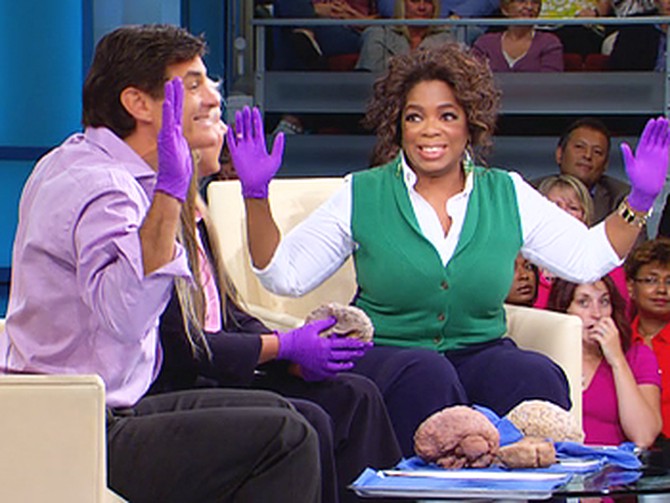
Dr. Oz says there are three basic things you should check for if you see someone experiencing what might be a stroke.
The first thing Dr. Oz says to do is ask the person to smile. Next, tell the person to put their hands up. "If you can do both, it means that your brain is completely intact on the top part. Also, it means that you understand what we're asking you to do and you're trying to cooperate."
The third thing Dr. Oz says to check for is whether the person can repeat a basic sentence. Dr. Oz gives the example, "Jill is beautiful." "If you can say that back, that means that you understood it and that your language center is intact," he says. "That's a very quick way of screening for the basic strokes that we worry about.
If you think someone is showing the signs of a stroke, call 911 and get help immediately. "If you get to a stroke center within three hours, they can pump medication into you that will bust the blood clot and then you will have less debilitation after the fact," Jill says.
The first thing Dr. Oz says to do is ask the person to smile. Next, tell the person to put their hands up. "If you can do both, it means that your brain is completely intact on the top part. Also, it means that you understand what we're asking you to do and you're trying to cooperate."
The third thing Dr. Oz says to check for is whether the person can repeat a basic sentence. Dr. Oz gives the example, "Jill is beautiful." "If you can say that back, that means that you understood it and that your language center is intact," he says. "That's a very quick way of screening for the basic strokes that we worry about.
If you think someone is showing the signs of a stroke, call 911 and get help immediately. "If you get to a stroke center within three hours, they can pump medication into you that will bust the blood clot and then you will have less debilitation after the fact," Jill says.
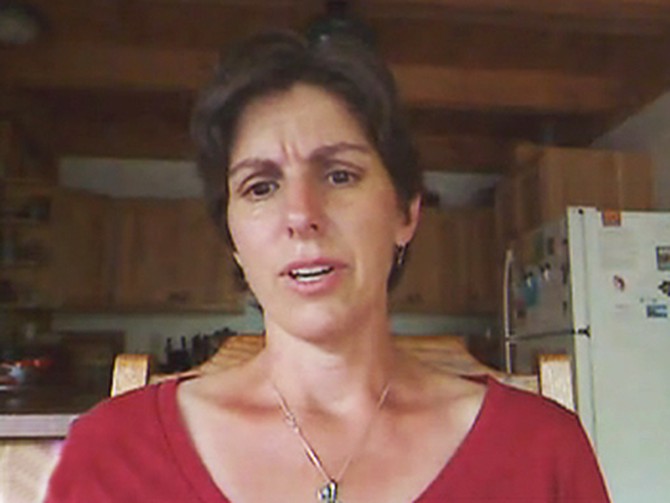
Less than two years ago, Lori says she suffered a stroke that left her unable to form words. She says Jill's book My Stroke of Insight helped her through her recovery and to better understand the emotional side of her stroke. "When I first came home from the hospital after my stroke, I didn't really know what was happening and I didn't understand," she says. "There was a lot of grief and a lot of fear and for both me and my family."
Lori says Jill's book was like the first piece of the puzzle. "This is going to help my family figure out what's going on, because it was so scary not to know what was happening," she says. "I was totally unconscious during my stroke and I woke up in the hospital and I didn't understand what was happening—and suddenly I couldn't speak correctly and my language was not correct."
Now, Lori has recovered and wants to thank Jill in her own words. "I feel so blessed to have gotten this book when I did, because it was pretty early on during my recovery, and I thought about you every day in the last year and a half of my recovery, thankful that you were here and that you gave this story to us—and that I was able to read it and finally make some connections for myself."
Read an excerpt of Dr. Jill Bolte Taylor's book My Stroke of Insight.
Watch Jill's interview for Oprah's Soul Series.
Read more about Jill's amazing story in O, The Oprah Magazine.
Take control of your health with America's Doctor, Dr. Oz.
Lori says Jill's book was like the first piece of the puzzle. "This is going to help my family figure out what's going on, because it was so scary not to know what was happening," she says. "I was totally unconscious during my stroke and I woke up in the hospital and I didn't understand what was happening—and suddenly I couldn't speak correctly and my language was not correct."
Now, Lori has recovered and wants to thank Jill in her own words. "I feel so blessed to have gotten this book when I did, because it was pretty early on during my recovery, and I thought about you every day in the last year and a half of my recovery, thankful that you were here and that you gave this story to us—and that I was able to read it and finally make some connections for myself."
Read an excerpt of Dr. Jill Bolte Taylor's book My Stroke of Insight.
Watch Jill's interview for Oprah's Soul Series.
Read more about Jill's amazing story in O, The Oprah Magazine.
Take control of your health with America's Doctor, Dr. Oz.
Published 10/21/2008
As a reminder, always consult your doctor for medical advice and treatment before starting any program.

